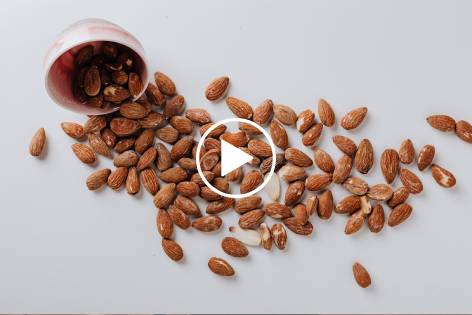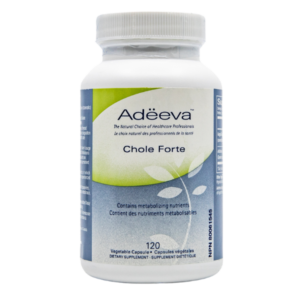
Snacking on Almonds Reverses Facial Wrinkles and Bad Cholesterol: True Story
Source: Phytother Res J (2019)
Lifestyle Medicine Update (September 20, 2023)
Studies in recent years, including the one published in the Journal of the American Heart Association, have confirmed that eating 42.5 gm of almonds per day (about 25 almonds) lowers the bad cholesterol by 7% in patients at high-risk for heart disease. Not only that but beginning in 2019 three consecutive studies have shown that consuming almonds each day, as a daily snack replacement, also reverses facial wrinkles in postmenopausal women, improves complexion and reverses facial pigment intensity. Almond consumption also helps to protect our skin against sun-damage (photoaging).
How does it work?
According to Dr Leslie Bauman MD, almonds contain high amounts of protective phenols, polyphenols, fatty acids, and vitamin E. These factors act as protective antioxidants in the skin against UV-light damage and exert other effects that reverse skin aging and undesirable blotchy skin pigmentation. The first study of this kind was published in 2019, involving 28 postmenopausal women. The group assigned to eat the almonds as their replacement snack each day for 16-weeks, exhibited diminished facial wrinkles by the end of the study. In 2021 another study involving postmenopausal women was conducted over 24-weeks. Once again, the women assigned to the almond consumption group experienced a reversal of facial wrinkles, and facial pigment intensity was reduced by 20%. In 2021 another study by Li et al, involving 39 healthy Asian women (18-45 years of age) was conducted. The group consuming the almonds each day showed reduced skin burn reaction upon UV-light exposure, compared to the group assigned to eat pretzels each day as their snack. The antioxidants in the almonds were absorbed into the bloodstream and then picked up by developing skin cells below the surface of the skin. Inside the skin cells these antioxidants helped to quench free radicals being generated by UV-light exposure, and thus, reduced sunburn reaction (erythema) and other cellular damage linked to skin cancer development.
In her review of almond ingestion and the topical use of almond oil on the skin, Dr Leslie Baumann also cites the studies where the topical use of almond oil on the skin has been helpful in certain skin condition such as wound healing, eczema, and psoriasis. The take home message in my view is that using almonds as a daily snack, in the place of other less healthy choices, is something to strongly consider. It can help to keep your bad cholesterol (LDL) under control and the active constituents in almonds are now proven to reverse some aspects of facial aging and help protect our skin against damage for UV-light that would otherwise accelerate aging, wrinkling, and increase risk of skin cancer. About 20-25 almonds per day should be your target. By the way, drinking almond milk is not a good substitute for eating almonds when it comes to deriving the benefits I have outlined in this update.
I have included all the references for this information in the text below.
References
Lee Y et al. Effects of dark chocolate and almonds on cardiovascular risk factors in overweight and obese individuals: A randomized controlled-feeding trial. JAHA Nov 17, 2017
https://www.ahajournals.org/doi/10.1161/jaha.116.005162
Foolad N et al. Prospective randomized controlled pilot study on the effects of almond consumption on skin lipids and wrinkles.
Phytother Res. 2019;33(12): 3212-3217 https://www.ncbi.nlm.nih.gov/pmc/articles/PMC6916293/
Rybak I et al. Prospective randomized controlled trial on the effects of almonds on facial wrinkles and pigmentation. Nutrients. 2021.13(3): 785 https://www.ncbi.nlm.nih.gov/pmc/articles/PMC7997170/
Li J.N. et al. Almond consumption increased UVB resistance in healthy Asian women. J Cosmetic Dermatology. 2012; 20(9): 2975-2980. https://www.ncbi.nlm.nih.gov/pmc/articles/PMC8451851/
Medscape Review: Almonds And Almond Oil: Cosmeceutical Critique. Dr Leslie S. Baumann MD. September 15, 2023
https://www.medscape.com/s/viewarticle/996314?ecd=wnl_recnlnew2_ous_230918_MSCPEDIT_etid5864975&uac=342474MN&impID=5864975#vp_1
Eat Smart, Live Well, Look Great,
Dr. Meschino
Studies in recent years, including the one published in the Journal of the American Heart Association, have confirmed that eating 42.5 gm of almonds per day (about 25 almonds) lowers the bad cholesterol by 7% in patients at high-risk for heart disease. Not only that but beginning in 2019 three consecutive studies have shown that consuming almonds each day, as a daily snack replacement, also reverses facial wrinkles in postmenopausal women, improves complexion and reverses facial pigment intensity. Almond consumption also helps to protect our skin against sun-damage (photoaging).
How does it work?
According to Dr Leslie Bauman MD, almonds contain high amounts of protective phenols, polyphenols, fatty acids, and vitamin E. These factors act as protective antioxidants in the skin against UV-light damage and exert other effects that reverse skin aging and undesirable blotchy skin pigmentation. The first study of this kind was published in 2019, involving 28 postmenopausal women. The group assigned to eat the almonds as their replacement snack each day for 16-weeks, exhibited diminished facial wrinkles by the end of the study. In 2021 another study involving postmenopausal women was conducted over 24-weeks. Once again, the women assigned to the almond consumption group experienced a reversal of facial wrinkles, and facial pigment intensity was reduced by 20%. In 2021 another study by Li et al, involving 39 healthy Asian women (18-45 years of age) was conducted. The group consuming the almonds each day showed reduced skin burn reaction upon UV-light exposure, compared to the group assigned to eat pretzels each day as their snack. The antioxidants in the almonds were absorbed into the bloodstream and then picked up by developing skin cells below the surface of the skin. Inside the skin cells these antioxidants helped to quench free radicals being generated by UV-light exposure, and thus, reduced sunburn reaction (erythema) and other cellular damage linked to skin cancer development.
In her review of almond ingestion and the topical use of almond oil on the skin, Dr Leslie Baumann also cites the studies where the topical use of almond oil on the skin has been helpful in certain skin condition such as wound healing, eczema, and psoriasis. The take home message in my view is that using almonds as a daily snack, in the place of other less healthy choices, is something to strongly consider. It can help to keep your bad cholesterol (LDL) under control and the active constituents in almonds are now proven to reverse some aspects of facial aging and help protect our skin against damage for UV-light that would otherwise accelerate aging, wrinkling, and increase risk of skin cancer. About 20-25 almonds per day should be your target. By the way, drinking almond milk is not a good substitute for eating almonds when it comes to deriving the benefits I have outlined in this update.
I have included all the references for this information in the text below.
References
Lee Y et al. Effects of dark chocolate and almonds on cardiovascular risk factors in overweight and obese individuals: A randomized controlled-feeding trial. JAHA Nov 17, 2017
https://www.ahajournals.org/doi/10.1161/jaha.116.005162
Foolad N et al. Prospective randomized controlled pilot study on the effects of almond consumption on skin lipids and wrinkles.
Phytother Res. 2019;33(12): 3212-3217 https://www.ncbi.nlm.nih.gov/pmc/articles/PMC6916293/
Rybak I et al. Prospective randomized controlled trial on the effects of almonds on facial wrinkles and pigmentation. Nutrients. 2021.13(3): 785 https://www.ncbi.nlm.nih.gov/pmc/articles/PMC7997170/
Li J.N. et al. Almond consumption increased UVB resistance in healthy Asian women. J Cosmetic Dermatology. 2012; 20(9): 2975-2980. https://www.ncbi.nlm.nih.gov/pmc/articles/PMC8451851/
Medscape Review: Almonds And Almond Oil: Cosmeceutical Critique. Dr Leslie S. Baumann MD. September 15, 2023
https://www.medscape.com/s/viewarticle/996314?ecd=wnl_recnlnew2_ous_230918_MSCPEDIT_etid5864975&uac=342474MN&impID=5864975#vp_1
Eat Smart, Live Well, Look Great,
Dr. Meschino
Recommended Supplements

Dr. James Meschino
ABOUT THE AUTHOR
Dr. James Meschino, DC, MS, ROHP, is an educator, author, and researcher having lectured to thousands of healthcare professionals across North America. He holds a Master’s Degree in Science with specialties in human nutrition and biology and is recognized as an expert in the field of nutrition, anti-aging, fitness, and wellness as well as the author of numerous books.


